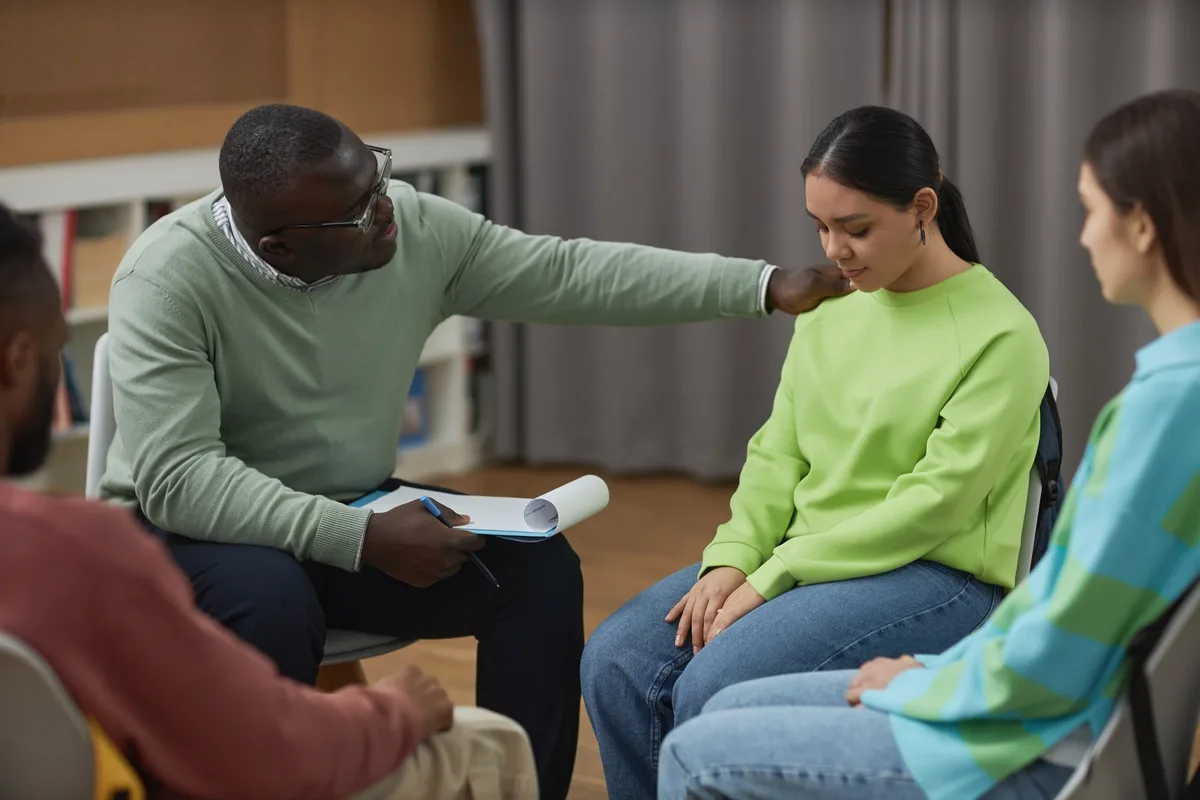24/7 Helpline:
(866) 899-221924/7 Helpline:
(866) 899-2219
Learn more about PTSD Treatment centers in Flemington
PTSD Treatment in Other Cities

Other Insurance Options

Ceridian

Horizon Healthcare Service

State Farm

Health Partners

Amerigroup

Lucent

ComPsych

WellPoint

MHNNet Behavioral Health

Covered California

United Health Care

Regence

PHCS Network

Molina Healthcare

Carleon

Meritain

GEHA

Kaiser Permanente

Optum

Magellan












